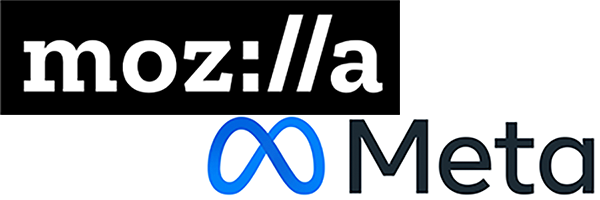
 |
| September 26, 2022 |
| Inside Meta and Mozilla’s IPA Framework | |
| The Atlantic Looks to New Revenue Streams | |
| CPG Brands Take the Lead in CTV Ad Spend Shift | |
| Around the Water Cooler | |
 |
||||||||||||
|
||||||||||||
| Could Meta and Mozilla’s IPA Framework Sneak Up as the Industry's New Attribution Standard? |
 |
| The World Wide Web Consortium (W3C) recently gathered in Vancouver to continue rewriting internet standards under the reign of new privacy regulations. Comprised of the industry’s publishing, technology, and advertising leaders, they collaborated to craft a privacy-safe web. A major topic was the future of attribution — the process “where advertisers link the viewer of an ad to those who took a desirable action, like going to a website or making a purchase.” Acquiring this information legally and ethically is much more difficult in an almost post-third-party cookie world. While Google and Apple have already submitted their ideas for privacy-safe attribution protocols, the talk of the town at the W3C was Meta and Mozilla’s Interoperable Private Attribution (IPA). Meta and Mozilla are the underdogs in this fight. As of data pulled in August 2022, in the realm of web browsers, Chrome had a 65.5% market share, Safari had an 18.8% market share, and Mozilla Firefox had a 3.2% market share. Meta does not currently have a web browser but it does serve 2.93 billion users monthly and is one of the primary builders of the metaverse, which could be the next evolution of the internet. A source from the conference stated that IPA’s status as relatively unknown could be an advantage. “The big problem is a trust problem,” the source said. “There is nothing wrong with Google and Apple’s approach, but they do depend on you trusting that Google’s or Apple’s code is effective and unbiased, even if it’s open sourced and people don’t trust it.” |
| While some industry experts seem to be leaning towards Meta and Mozilla’s IPA, many agree that the final answer will be an amalgamation of solutions. But what exactly is IPA, and how will it affect the ad tech industry? IPA’s unique protocol works based on multi-party computation. This medium shares the process of matching users and actions between multiple servers. This process all happens in one browser in the other frameworks. Afterward, the user data is broken up and encrypted in a match key which anyone on the web can operate. The only way to obtain data is if the match keys correspond. For instance, if the same user visited a publisher’s website and made a purchase. In the grand scheme of things, the future of data collection is with the consumer. Since data ethics and privacy have become the law of the land in ad tech, consumers will have the power to choose who can access their data. Meta and Mozilla’s IPA attribution framework enables that power and stores data on multiple servers to access it. This development is quite the transition from the W3C conference in 2020, where Firefox and Apple blocked cross-site tracking without an alternative. Whereas Chrome offered a solution then, it seems that Mozilla is positioning itself as a heavy hitter in the discussions concerning privacy regulations. Still, we all get a little nervous when big tech starts leading the way forward for a privacy-safe open web. The industry still has many strides to develop a concrete solution, but many at the conference seemed encouraged. “We are encouraged by the progress made in the W3C meetings this week—and the common desire among industry participants to progress toward a web standard,” said Erik Taubeneck, a research scientist at Meta. |
| The Atlantic’s Push into TV and Film Signifies Importance of Revenue Diversification |
 |
| The Atlantic found itself in a bind when their end-of-year projections revealed that they could lose roughly $10 million again this year. CEO Nicholas Thompson took this blunder as a call to action to diversify his revenue. "One of our objectives is to build a third substantial revenue stream beyond subscriptions and advertising," said Thompson. "Affiliate IP is obviously one place you could get that, so it's a significant focus." The third revenue stream in question is a push into TV and film. The publisher debuted its first TV project on Sept. 21. The six-part docu-series entitled "Shadowland" premiered on Peacock. The story is based on an Atlantic editorial series about conspiracy theories and their threat to democracy. Their first feature-length documentary, "Lowndes County and the Road to Black Power," will launch on Peacock in early 2023, focusing on voting activism in the 1960s. According to Thompson, the company has 12 other projects based on Atlantic IP (Intellectual Property) optioned or in the production phase. This move is only the beginning. The publisher hired the Creative Artists Agency in 2020 to represent all of their IP deals. In addition, the Atlantic recently unleashed its entire archive online for the first time, unveiling 29,000 new stories that could be optioned for production. Licensing their content to third-party affiliates is new territory for the Atlantic, but Thompson believes it is the best medium to diversify their revenue streams. |
|
First, the pandemic caused everyone in the ad tech industry to dial back and reassess their business. Now, with a looming "recession," revenue diversification has become more paramount. Complex has also turned attention to establishing derivatives for original premium productions for streaming platforms. “The idea was if we created a best-in-class piece of content that we can self distribute, then we can monetize from a pre-roll point of view,” says Killion “We can sell sponsorships against it. We can own the content, we can then license the content internationally or even domestically to linear networks, which we’ve been successful at doing. We can then also use that IP to create derivatives for original premium productions for outfits like Netflix, Amazon, HBOMax, or Linear TV… or even Premium Podcasters like Spotify & Audible.” |
| The CTV Shift Is Real: CPG Brands Lead The Way |
 |
| Historically CPG Brands are known to lag behind when it comes to media trends, but in terms of CTV ad spend, they are leading the way. Packaged goods brands allocated 52% of online video ad impressions on CTV last year, up 44% from the year before. CTV beats mobile (which represented 37% of the industry's impressions) and desktop devices (11%), according to research from Innovid, a converged TV and measurement platform. Luckily, with advertising on CTV, CPG brands did not run into the issue of reaching the same audience twice. Of over six CTV publishers that advertised with CPG brands, publishers saw a duplication rate of only 12%. While CPG ad spend is on the rise, Stephanie Geno, CMO of Innovid, found that the stats vary by category:
|
| Ecommerce, the rise of diverse shoppable formats, and the use of QR codes in CTV ads play a huge role in this shift we see, according to Geno. CPG advertisers shifting money from linear TV to CTV to improve reach and attract younger audiences that linear can't reach also plays a role. "The eyeballs are shifting, and we know that inventory and dollars often follow eyeballs," Geno said. Even with this uptick in spending on CTV, CPG advertisers only reached 12% of Innovid's 95 million CTV households, so just think about the growth to come. CTV pubs must prepare for the ad spend flood gates to open because the time is coming. |
| Around the Water Cooler |
 |
| More topics on our radar... Retail Media Spend to Hit $101 Billion by End of 2022 — GroupM predicts an increase of 15% over last year. The agency expects the category to exceed $161 billion in five years. Experts see retail media getting more out of brand budgets despite a declining economy due to targeting measures exclusive to the category. (AdAge) Auto Industry Ad Spend on the Decline — Recent data from an advertising research firm shows U.S. auto industry ad spend fell 4% for the first time in seven months. This is due in part to inventory shortages that have tarnished sales despite high vehicle demand. Overall, auto ad spend saw a 12.7% decrease when compared to pre-pandemic 2019 at $5.50 billion. At this time digital ad spend was 53% of the total $4.80 billion the industry spent over these seven months, according to data provided by Standard Media Index (SMI). (Reuters) Google's "Results about you" tool — Oh oh, looks like Google is tampering with the ecosystem again. This new tool lets consumers remove results containing their phone number, email, or home address. It will also allow users to submit information removal requests and track those requests. Our question is, will Google still be using consumer info removed from search for their own gain? (TheVerge) |
 |
||||||||
|
||||||||
 |
||||||||
 |
||||||||
|
| @{optoutfooterhtml}@ |